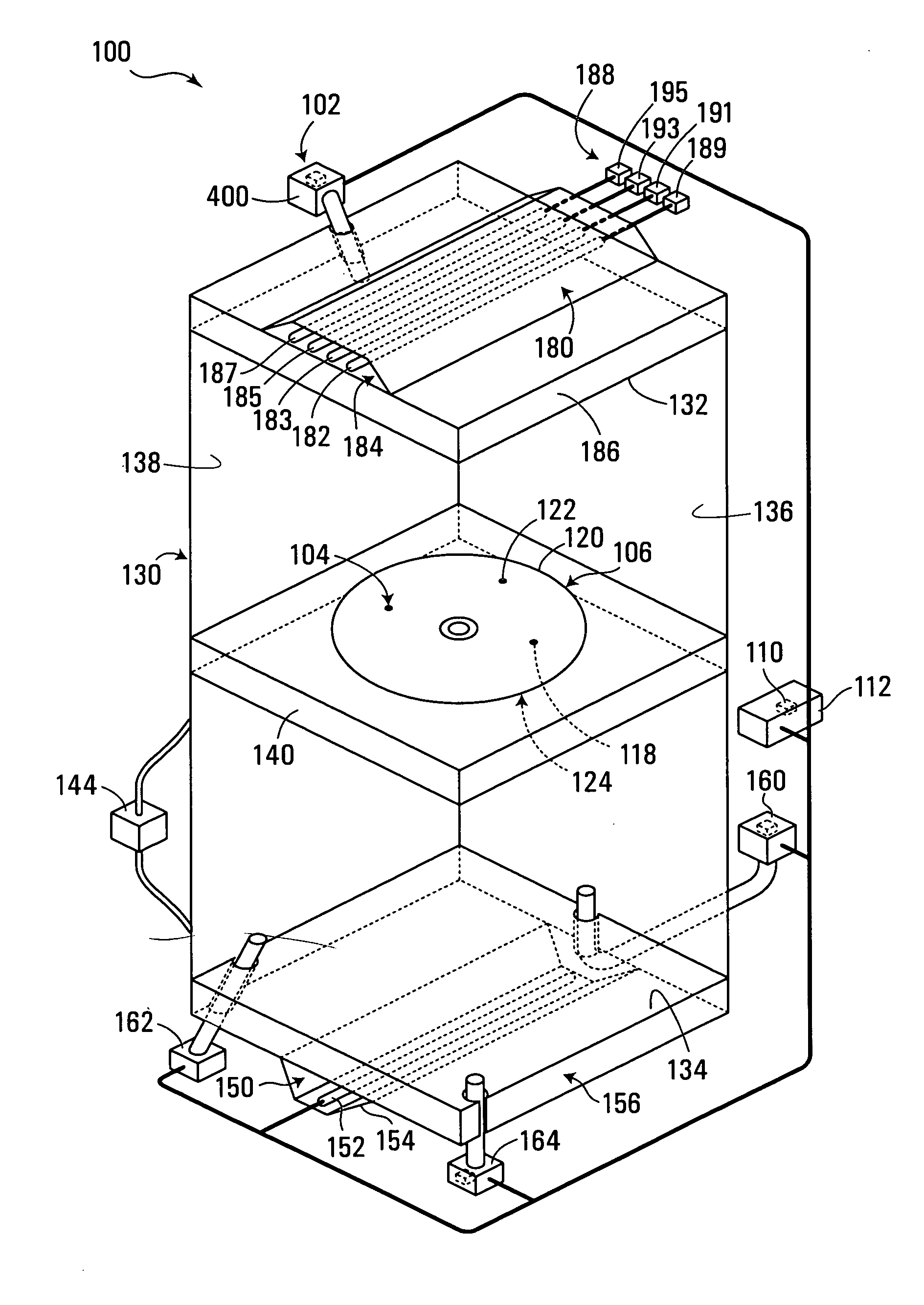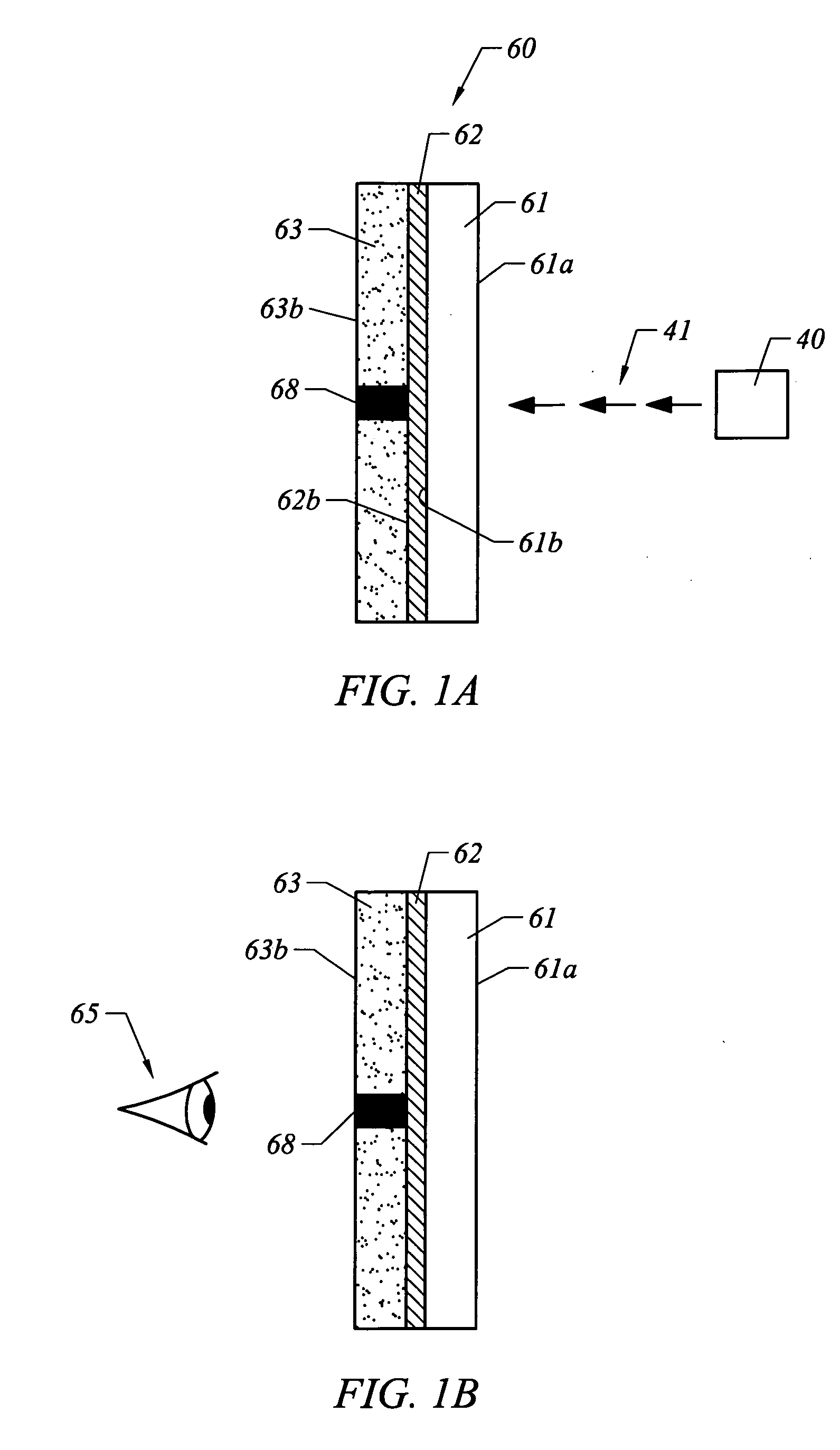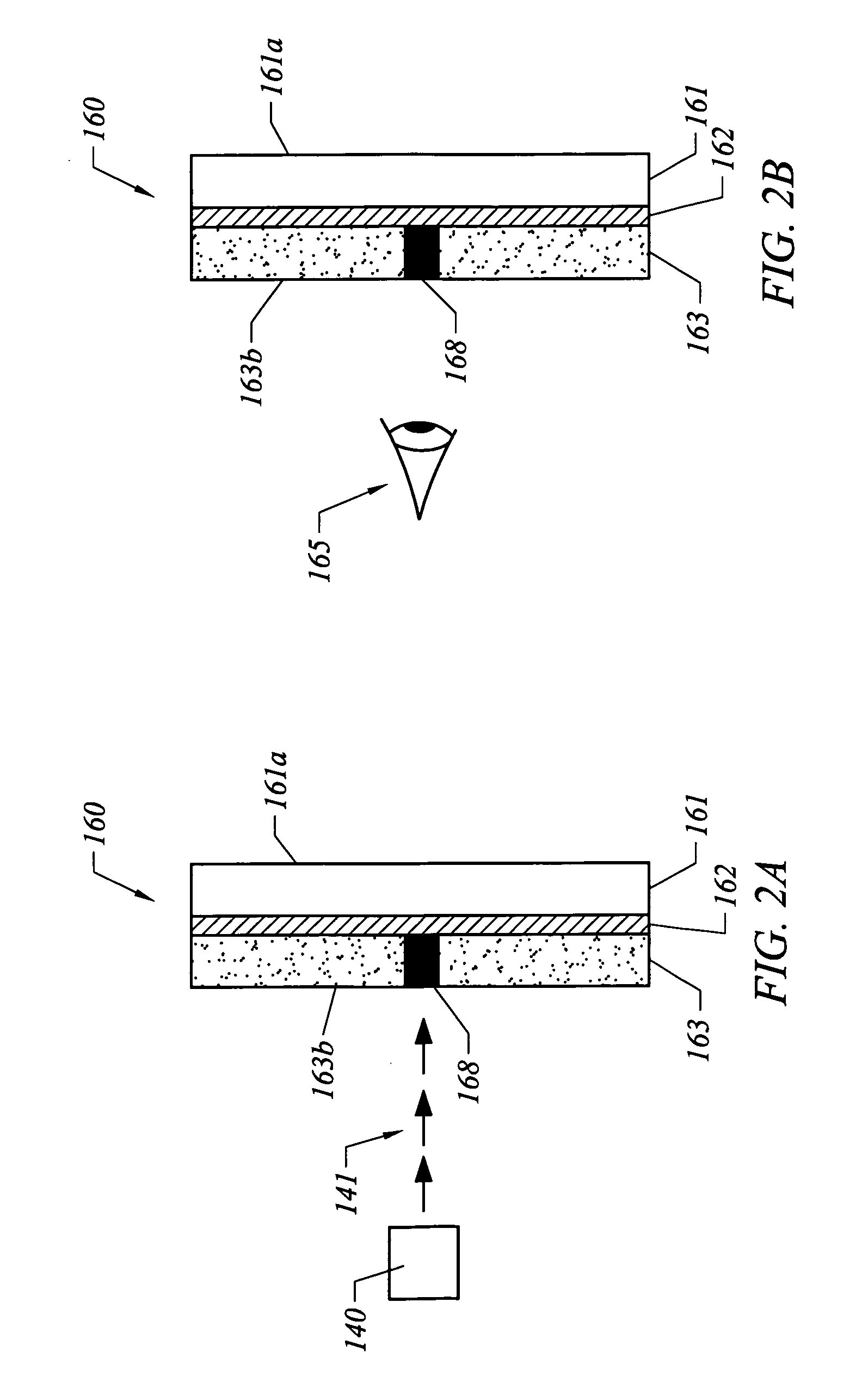Multi-layer, light markable media and method and apparatus for using same
a multi-layer, light markable technology, applied in the direction of photosensitive materials, mechanical control devices, identification means, etc., can solve the problems of requiring media sensitive to nir (near, undesirable coloration, cost of narrowband nir absorbers), etc., to reduce the operating speed of the rotary bellows
- Summary
- Abstract
- Description
- Claims
- Application Information
AI Technical Summary
Benefits of technology
Problems solved by technology
Method used
Image
Examples
example 2
Set-Up 1
[0139] Laser: 0.20 Watt 980 nm single beam laser
[0140] Coating: Direct Thermal (Typically found on paper labels used in Direct Thermal Printers) with NIR absorber mixed into the direct thermal layer.
[0141] Laminate: Clear LDPE
[0142] Write Speed: 40 cm / s
[0143] Power: Watts
[0144] Label Carrying Material: Black rubber
[0145] Write speed was increased in 5 cm / s increments until the resultant mark was fully marked (i.e. width of the line equal to the full width half maximum laser parameter −80 um). For this setup the write speed was 40 cm / s.
Set-Up 2
[0146] Laser: 0.20 Watt 980 nm single beam laser
[0147] Coating: Direct Thermal (Typically found on paper labels used in Direct Thermal Printers) with NIR absorber mixed into the direct thermal layer.
[0148] Laminate: Clear LDPE
[0149] Write Speed: 40 cm / s
[0150] Power: Watts
[0151] Label Carrying Material: Brushed aluminum
[0152] Again the write speed was increased in 5 cm / s increments until the resultant mark was fully mark...
PUM
| Property | Measurement | Unit |
|---|---|---|
| thick | aaaaa | aaaaa |
| wavelength | aaaaa | aaaaa |
| wavelength | aaaaa | aaaaa |
Abstract
Description
Claims
Application Information
 Login to View More
Login to View More - R&D
- Intellectual Property
- Life Sciences
- Materials
- Tech Scout
- Unparalleled Data Quality
- Higher Quality Content
- 60% Fewer Hallucinations
Browse by: Latest US Patents, China's latest patents, Technical Efficacy Thesaurus, Application Domain, Technology Topic, Popular Technical Reports.
© 2025 PatSnap. All rights reserved.Legal|Privacy policy|Modern Slavery Act Transparency Statement|Sitemap|About US| Contact US: help@patsnap.com



